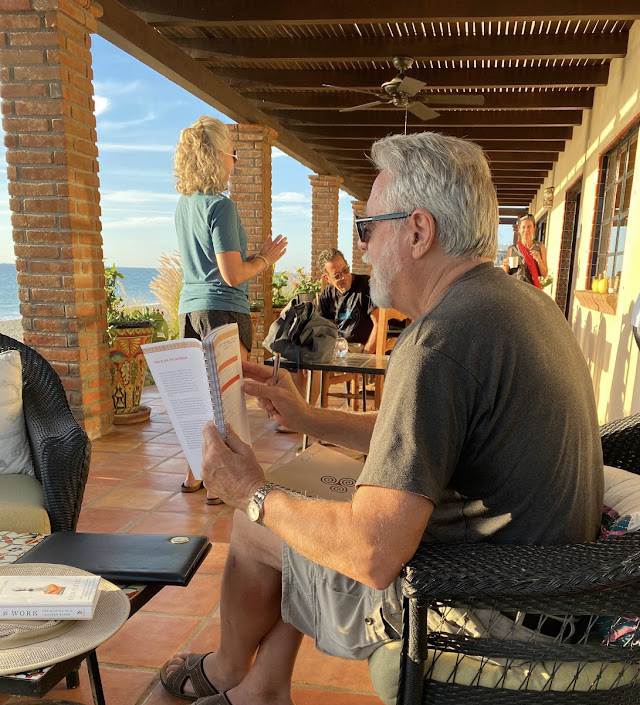Tennis star Serena Williams recently announced her “retirement” in the pages of Vogue magazine. Williams said she did not like the word, retirement, saying it sounded like a dated idea to her. Williams preferred to say, she was evolving. In her words:
“I have never liked the word retirement. It doesn’t feel like a modern word to me … Maybe the best word to describe what I’m up to is evolution. I’m here to tell you that I’m evolving away from tennis, toward other things that are important to me.”
The financial services industry and the business of advice should take note. Words in academic journals or market reports have far less influence on how people think about their lives than when an entire life stage is called out in the popular media by a respected social icon. Williams effectively fired a warning shot signaling to the financial services industry and specifically to the business of advice — retirement is being retired. And, perhaps, so is the value clients place in traditional financial and retirement planning advice.
Just as many firms are printing, posting and placing an endless array of content that looks a lot like our parent’s retirement, many people are improvising what they want life to be for that one-third of life we refer to with the 19th century moniker — retirement.
Work, whether full-time or part-time, is now a part of retirement. So is joining far younger generations in the on-demand economy. Going back to school, starting a new business, or volunteering — and yes, maybe even pickle ball. And, then there are the complexities of managing health, providing care to a loved one, and assessing daily whether where you live now is where you can live tomorrow. Preparing for retirement is more than planning for financial security, it is about living well ~8,000 days of your adult life.
A sea change
At the age of 41, Williams is suggesting that she is evolving from one part of her life to another, to things more important to her. Yes, she is young and has a bankroll far greater than most, but she is echoing a sea change in client wants, needs, and ultimately expectations.
Since the pandemic, every generation is rethinking and asking, “What is important to me and to those that I love?” Just look at how the once unquestioned social contract between employee and employer is being rewritten today.
For example, financial compensation alone is not enough for many employees to sign on, let alone remain, with a company. Pay and benefits might be a start, but now employees of every age are seeking flexibility in work hours and where they work. Moreover, a growing number of employees no longer believe the adage, “the business of business is business.”
Instead, workers now expect their firms to mirror their social values and to ensure that the business is about more than profits, but about social impact as well. Retirement planning and financial advice is not immune from such social shifts.
After decades of effective industry marketing, clients from Gen Z to Silent, have been successfully persuaded to believe that the business of advice is singularly focused on the complexities of money, markets and portfolios. Today, clients remain convinced that financial security is critical, but advice focused solely on finance does not necessarily address issues beyond money management and what’s important to me.
Delivering comprehensive client value
A new model of advice is needed. Financial planning and security will always be necessary, but it may not be enough to deliver comprehensive client value — particularly to younger and middle-age clients.
Those nice, neat, segmented life stages that have informed products, advisory tools and scripts are morphing.
Clients are not following yesterday’s life script. They are now looking for financial advice and someone to help them navigate a longer life, full of uncertainty, and contextual and personal changes. Call the new model of advice longevity planning, or just value-added advisory services, but whatever it may be called, if the only value provided by an advisor is financial planning and security, many clients will think, “There must be an app for that, but who can advise me on all the things important to me across my life course?”
“In the nearly 8,000 days that make up the ‘retirement’ that clients will want — and many will demand — they will need solutions to address a wide range of later-life complexities.”
In the nearly 8,000 days that make up the “retirement” that clients will want — and many will demand — they will need solutions to address a wide range of later-life complexities. These challenges, even with money, will require access to trusted solutions. Even with ample cash, addressing the many “jobs of longevity” requires significant research, effort and critical decision-making. For example, what are the best ways to remodel and future-proof your home so that you can live there well into older age? At some point all of us will provide care, or require care. What is the best way to find a quality home-care provider? For some, senior housing may be necessary. But what are the alternatives, how should they choose, and what questions should they ask?
Additional Reading: Longevity Advising Proves to Be a Blue Ocean Strategy
Advisors need not, nor should not, be all things to all clients. Today’s client assumes quality financial advice and planning. But today’s financial advisors and retirement planners will need to go beyond money and evolve into longevity planning advisors. The longevity planning advisor sits at the center of a team of experts and services providers. As the lead, and owner of the client relationship, the longevity advisory practice helps clients anticipate life tomorrow, serves as a source of trusted information, and provides access to a wide range of expertise and services to navigate the many complexities faced across the lifespan.
To borrow from Serena Williams, the client is evolving, and their needs and expectations are evolving. But is the business of advice?
Joseph F. Coughlin, PhD is Director of the Massachusetts Institute of Technology AgeLab. Learn more about the future of advice in the #longevityeconomy by visiting MIT AgeLab’s Preparing for Longevity Advisory Network (PLAN) research page. Reach him on LinkedIn and on Twitter (@josephcoughlin). Coughlin based this Rethinking65 contribution on his Forbes article “Serena Williams Serves Up A New Vision Of Life And Retirement.”







